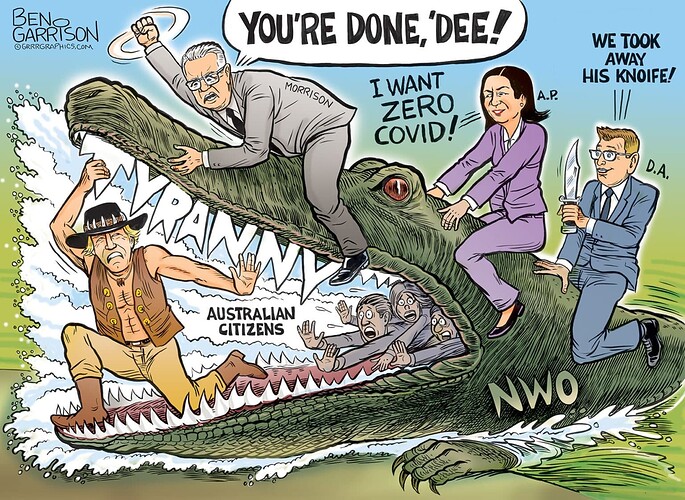Siberian illegal immigrants took all the cool animals.
This is driving me nuts, neither one sounds right.
- The only police presence I saw were a few nervous-looking cops manning a small outpost near the harbor.
Or
- The only police presence I saw was a few nervous-looking cops manning a small outpost near the harbor.
2
The subject of that sentence is presence, and so “The presence was” is correct.
Well, one of those is still around.
I’d remove the word “presence.” It’s unnecessary and leads to a clunky sounding sentence.
The pointy stick is mightier than the claw
“The only police I saw were a few nervous-looking cops manning a small outpost near the harbor.”
Yeah I guess this is ok. I do like the term police presence though.
“The only police presence I saw consisted of a few nervous-looking cops manning a small outpost near the harbor.”
I still prefer the no presence sentence, especially since what you saw wasn’t much of a presence.
Oh shit, Australia got its very own Garrison cartoon.
Gotta say I am disappointed in his work on Daniel Andrews though, that is not a good likeness.
Right, well that’s the point is that there was basically no police presence.
I still think it’s better to just write clearly.
Bill Bryson opens his Australia joke about how it’s impossible for non-Aussies to remember the Australian PM’s name for more than a few seconds. And it’s totally true. No way I remember that name tomorrow.
My book is 37% snark. By this point the reader will enjoy snark or will have long since thrown the book away.
sorry for the pure grunch and I have no idea if suzzer wrote that or what the context is, but basically I agree with DrCP that it’s better just ditching presence—I mean for sure “police presence” can mean something different than “police” but usually only barely—and anyway in my experience whenever a person is trying to write a sentence but it never sounds quite right and then they start getting into the whole do-si-do of moving this bit here and that bit there and toggling through tenses or adjectives and it’s always almost working but never exactly working, it’s usually a strong sign that the whole structure is fucked and that, at least as a two-minute exercise, they should try shaking their head clear like an etch-a-sketch and completely retrying the whole thing in the spirit of: ok fine so what the fuck am I actually saying here? …and then to just say that. In my experience writing sentences can definitely occasionally feel like solving LSAT logic games but only very very very occasionally
in the same spirit, “nervous-looking” doesn’t do much for me; in general I’d rather describe what they’re doing and let the reader conclude that they were nervous as if the reader were looking too
I didn’t see many cops------------------just a few fidgeting by a small outpost near the harbor.
If it’s possible to remember it for a negative amount of time, you’ve done that. Daniel Andrews is the Premier of Victoria. The PM is Scott Morrison. Also pictured is Anastasia Palaszczuk, Premier of Queensland.
I knew it was Morrison because I looked it up. But I forgot while I was typing the post.
I agree that if a sentence isn’t working it’s usually a sign that the writer is coming at the whole sentence or paragraph the wrong way.
Much like computer programming. After a while you can just feel you’re coming at something the wrong way and making it too hard.
Here’s the whole paragraph as is right now. I don’t really like the next sentence that describes the cage either. But I’ve written and rewritten it 50 times so I’m probably just going to move on and come back later with a fresh look at it. This is all just the first draft.
Bluefields for its part seemed to be functioning normally. Nothing was closed, and I didn’t see any shops running out of supplies. During the first round of protests, a local journalist named Angel Gahona had been shot and killed while broadcasting live on Facebook. So the town was still a little on edge. The only police I saw were a few nervous-looking young cops manning a small outpost near the harbor. An outer cage of tightly-spaced metal bars encased their bodega-sized station on all sides, creating a tiny fort they could retreat to in times of extreme unrest. It was a weird juxtaposition to imagine–cops peering out from inside their cage while the mob roamed free all around them.


